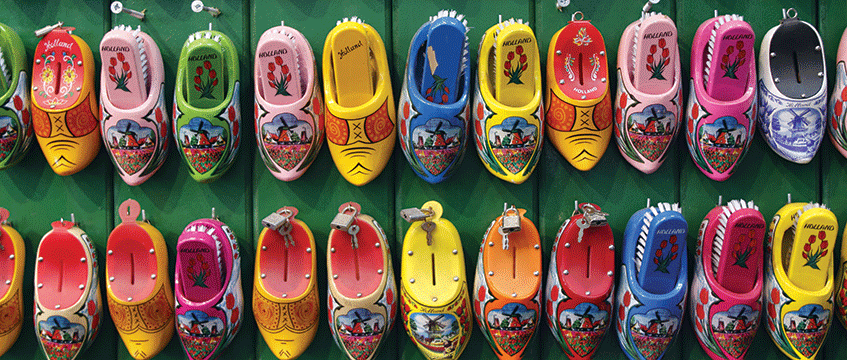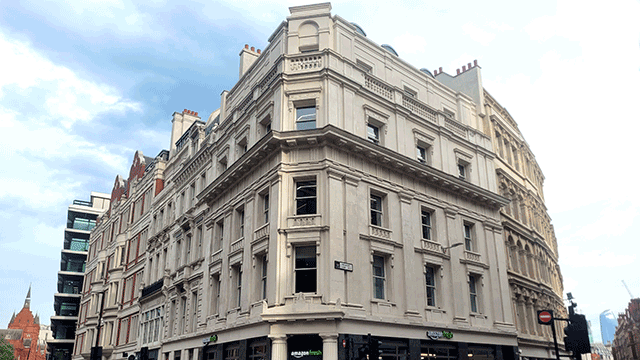Middle Eastern investors put £3.4bn into Europe (including the UK) in 2016, £5.4bn in 2017 and £4.8bn in 2018, according to data from Real Capital Analytics, as Europe is seen as a safe haven for investment with real estate offering steady returns.
In terms of markets, the “top two” countries for Middle Eastern investors over the past three years have been the UK, with £2bn, £2.64bn and £2.8bn invested in 2016, 2017 and 2018 respectively, followed by Germany, with £623m, £1.18bn and £852m invested over the same period.
But with Brexit uncertainty looming, the Netherlands is fast emerging as a strong competitor, where there is a perception of finding value as the returns are slightly better. This trend is already being reflected in the Dutch investment figures.
The flying Dutchmen
In 2018, more than £563m was invested in the Netherlands by Middle Eastern investors, the highest figure of the past 10 years and a fivefold increase on 2016 (£103m) and 1.5 times 2017’s figures (£374m).
As a result, the Netherlands overtook Spain (£250m invested in 2018) to become the third most popular spot in Europe behind the UK and Germany.
In terms of asset classes in the Netherlands, offices and hotels continue to attract interest, with a private family office from the Middle East buying the MM25 office building in Rotterdam for an undisclosed price from OVG Real Estate in summer 2018.
And 2019 is off to a strong start, with several Dutch deals involving Middle Eastern investors currently in lawyers’ hands.
Notwithstanding prime yields for hotel investments decreasing twice as fast (-450 bps) since 2014 compared to office (-250 bps) or logistic investment returns (-225 bps) in the Netherlands, investor interest in the Dutch hotel market will continue to grow in 2019.
Despite the restriction of new hotel developments in Amsterdam, some 3,500 rooms will be added in the city in 2019 and 2020. But demand is still ahead of supply and the Netherlands has had an annual visitor growth rate of 7% over the past five years, with Amsterdam and nearby cities such as Utrecht, Rotterdam and The Hague seeing increasing visitor numbers.
As a result, these cities are experiencing an unprecedented rise in hotel developments and investment activity.
It’s the economy, stupid
One of the key attractions of the Dutch market for investors is the strong performance of the economy, which has now shown uninterrupted growth for 17 consecutive quarters, implying a trend break with the standard real estate cycle of around seven years.
An “extended” cycle is now certain and there are even signs that point to a double cycle. At the same time, yields remain under pressure due to high demand but they are starting to bottom out.
Middle Eastern (and other) investors see rental growth as a particularly positive reason to continue investing in Dutch real estate at historically high price levels.
Traditionally, real estate continues to be the ideal “inflation hedge” and, based on current inflation expectations, this will remain the case in 2019.
As a result, we expect Middle Eastern investors to continue to invest in Europe and more of them to “go Dutch” if they find the right product in the right place at the right price.
Hotels and offices dominate
Outside the Netherlands, the two most attractive asset classes for Middle Eastern investors in Europe are offices and hotels, with recent deals involving Abu Dhabi’s LuLu/Twenty14 Holdings buying the IntercityHotel Zurich Airport in Switzerland earlier this year for an undisclosed price and the Waldorf Astoria – The Caledonian in Edinburgh in 2018 for £85m.
Other investors active in the European hotel market have been a private individual from Kuwait buying the Village Hotel in Glasgow, Select Group buying The Echo Building in Liverpool and Omani Al-Zaman Group buying a portfolio of four hotels in Darmstadt, Frankfurt, Mainz and Rostock, Germany, in 2018 for an undisclosed price.
On the offices side, acting on behalf of private Middle Eastern investor Soor Capital, Savills completed the £39m acquisition of 23-26 Austin Friars, EC2, in December 2018, representing a net initial yield of 5%.
In the same month, Dubai-based investor SRG Holding bought the global headquarters of fashion designer Victoria Beckham at 202 Hammersmith Road, W6, for £16.8m with a net initial yield of 4.4%, with Savills advising the vendor.
Other big office deals in 2018 included the Bank of London and the Middle East’s purchase of Moorfield’s MREFIII Fund’s 1 Atlantic Quay building in Glasgow for £55m. Advised by Savills, this was the first major investment in Scotland’s biggest city for the largest Islamic bank in Europe.
On the continent, Investcorp purchased the KÖ Campus office complex in Frankfurt, Germany, in 2018 for around €85m (£75.5m) with Savills advising.
Hassan Farran, is a director in Savills’ cross-border investment team











